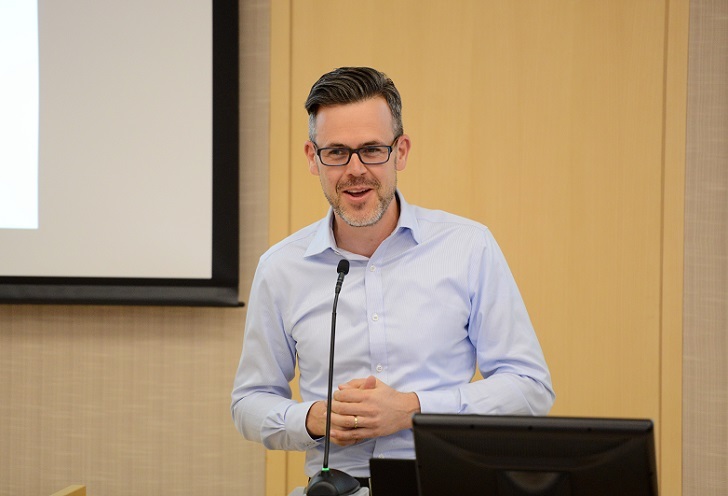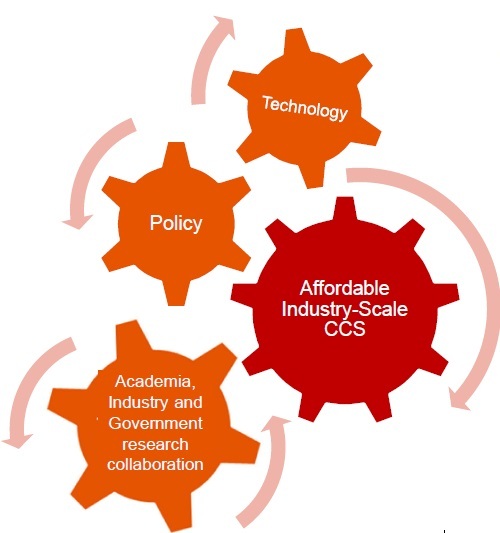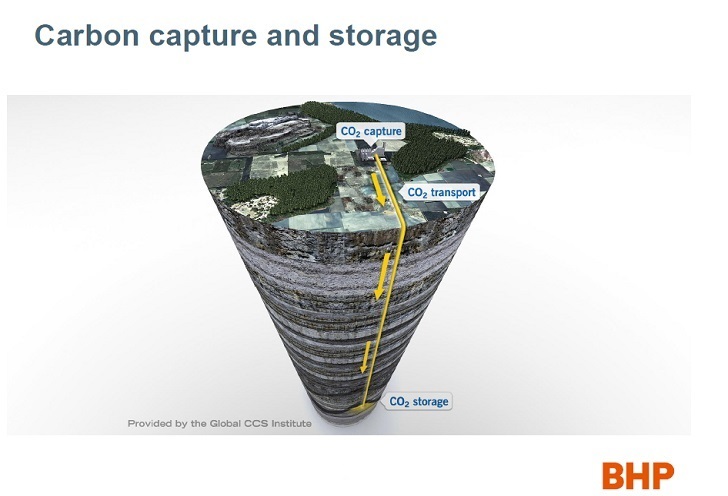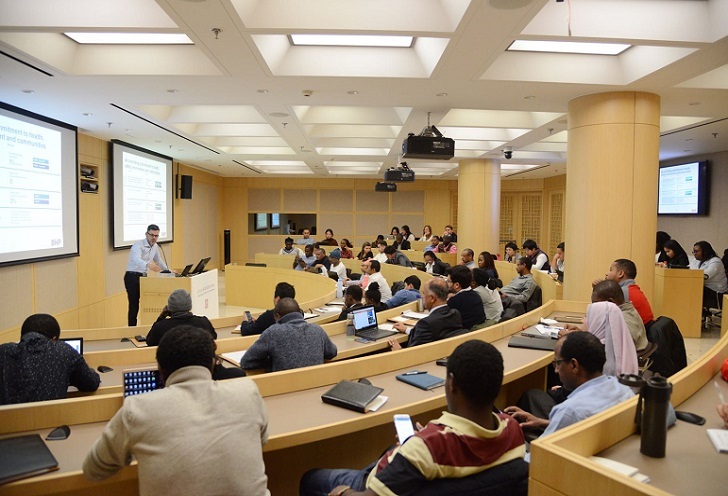Executive Education
sidenav header backgroundBHP’s Climate Change Strategy: Managing Risk and Opportunity

On Nov. 19th, 2108, Peking University Public Policy International Forum welcomed a guest speaker, who is an expert accumulated rich experience on energy and climate, BHP’s Practice Lead Climate Change, Dr Graham Winkelman to share his thoughts on BHP’s Climate Change Strategy: Managing Risk and Opportunity to the students of the Institute of South-South Cooperation and Development -- governmental officials from developing countries and students from Yenching Academy of Peking University.
Starting from the introduction of BHP, Dr Graham shared the value and ethical principles of BHP and illustrated what BHP has done to achieve its goal of becoming a sustainable, integral, respectful and responsible company. The discussion became hot when questions were raised about the details of the introduction of Dr Graham. Some of the audience were eager to know the specific goal BHP has set, while others consulted Dr Graham about the mineral products of BHP, mineral exports of Australia and how BHP ensured the sustainability and environmental accountability during its mining.
In response to these questions, Dr Graham talked about the mission of his department: to work on different scenarios to lower carbon emission. BHP is also working on supporting and funding researches on renewable, reliable and affordable energies to contribute to the realization of the goal set by Paris Agreement on 2015: net zero carbon emission in the second half of the century. This led to the second part of the lecture: the history of climate change and what we have achieved and planned to tackle it. From the discovery of the existence of climate change in Mauna Loa in 1958, many methods have been taken to prevent climate change from getting any worse. From a policy level, the government could set emission tax, subsidize new energy companies, build emission trading markets, regulate carbon emission, invest directly on the limitation of carbon emission, etc..
He introduced the IPCC 1.5°C report which was published on 8 October 2018, prepared by the IPCC in response to an invitation from the UN, in the first instance to inform policymakers and the Talanoa Dialogue process, which will take place during the next round of inter ational climate negotiations at COP24, to be held in Poland in December.The dialogue will assess progress to date towards the long-term goals of the Paris Agreement of ‘holding the increase in the global average temperature to well below 2°C above pre-industrial levels and pursuing efforts to limit the temperature increase to 1.5°C above pre-industrial levels’. This process will, in turn, inform the preparation of countries’ new or updated nationally determined contributions (NDCs).
This was the place where more questions were put forward about the details of a carbon emission market and the effect of climate change policies. Having participated in the carbon emission trading at BHP, Dr Graham explained the details of such a market and how the mechanism was working. As for the effect of environmental policies, Dr Graham admitted that these policies sometimes became too political, which could be easily manipulated by politicians to attract votes.
He pointed out that the ongoing demand for fossil fuels requires a response, as ongoing demand for fossil fuels for energy and industrial applications is significant, to meet development and climate goals, the world must find ways to progressively reduce emissions from the production and use of fossil fuels, improve energy productivity, promote fuel switching and increase the use of alternative energy sources such as renewables and nuclear power.
He introduced Carbon Capture and Storage (CCS) Technology, and said it requires technology and policy to move ahead together to build a net zero emissions and it is necessity to collaborate between industries, government and academia.


Climate changes in developing countries were also an important part of Dr Graham’s presentation. Though Dr Graham admitted that it’s quite difficult to balance emission reduction and development in many developing countries, many listeners from developing countries in Africa and Asia had different minds. Having suffered from poverty for decades, these countries were in desperate need of getting rid of poverty and built a prosperous and affluent nation for their fellow citizens. It was development, not carbon emission reduction, standing on the top of the priority list of these countries. Moreover, compared to traditional energies, new energies were not reliable and affordable enough to support the growth of these countries. Then the audience shared their views about how to fund and support the emission reduction in a most efficient way.
The seminar came to an end with the concluding speech from Professor Fu Jun, academic dean of International South-South Cooperation and Development, to give a retrospection of the whole lecture. This seminar deepened the audience’s understanding of environmental issues as well as the frontiers of emission reduction, allowing them to contemplate more about the energy and development policies of their own home countries.

(By ZHOU Ziqi)







